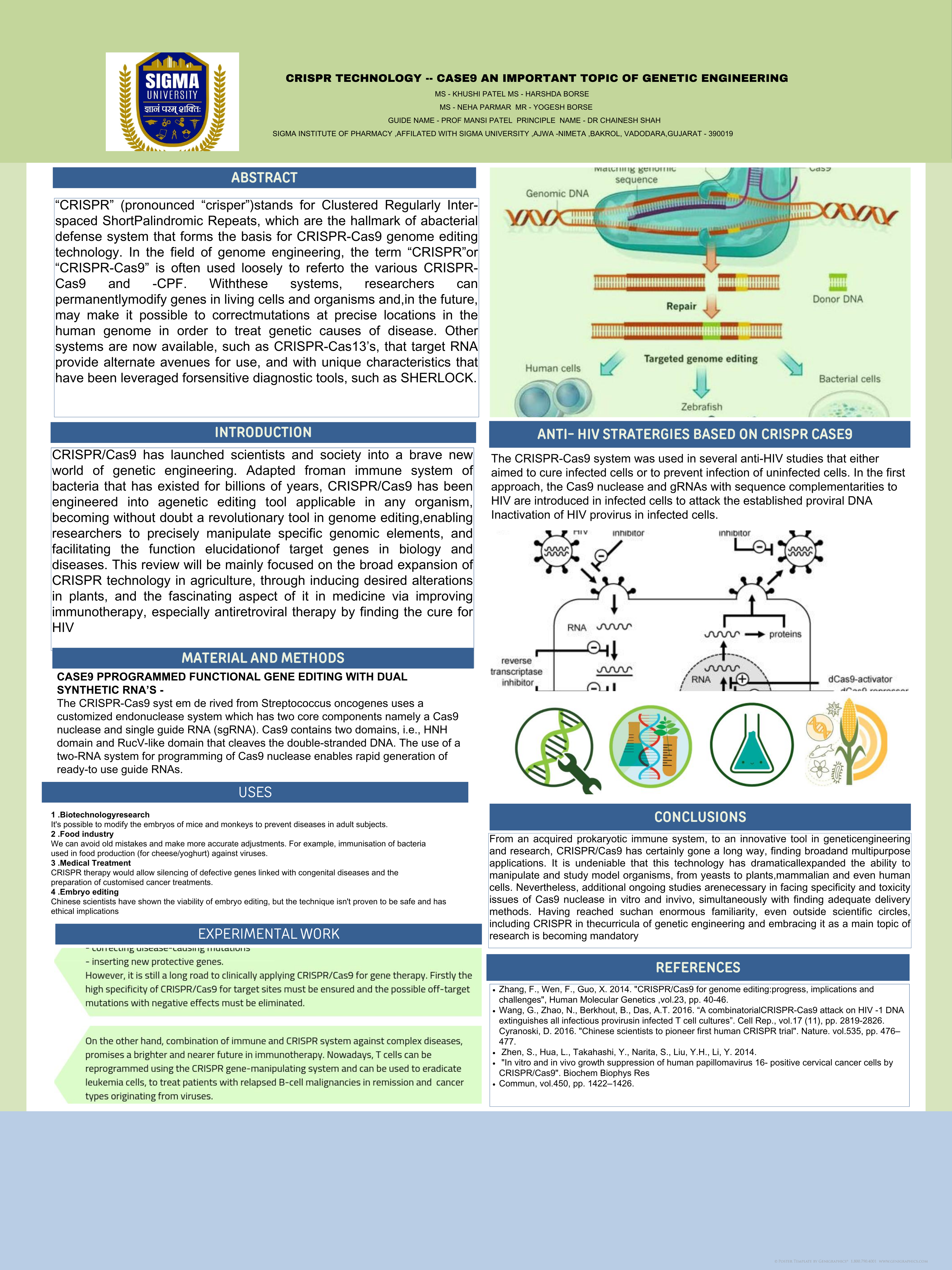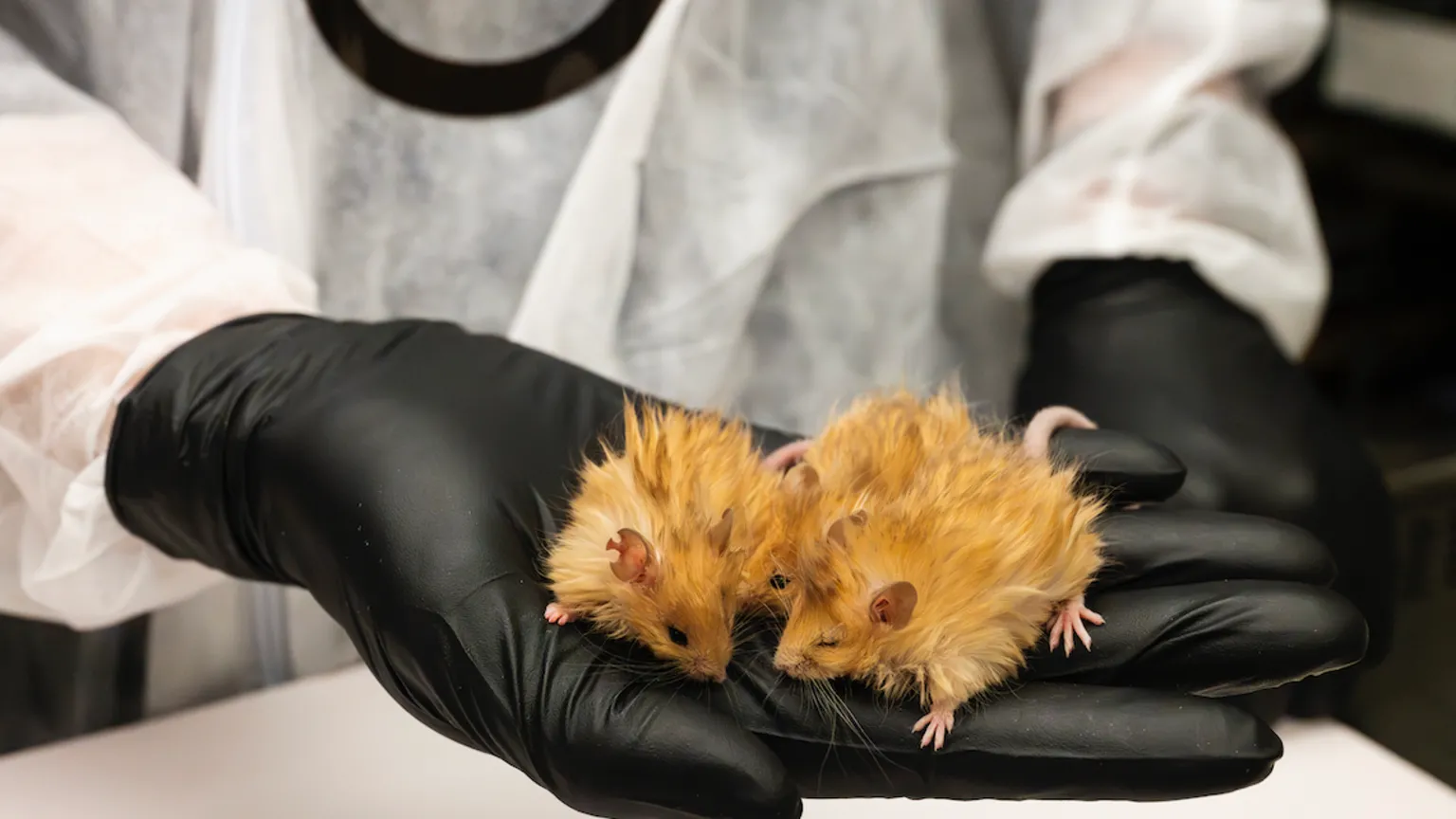Back
Yogesh Borse
"Empowering Healthca... • 1y
CRISPR (Clustered Regularly Interspaced Short Palindromic Repeats) is a revolutionary genetic engineering tool that allows scientists to edit DNA with unprecedented precision, efficiency, and flexibility. It is based on a natural defense mechanism found in bacteria and archaea, where these organisms use CRISPR-associated proteins (like Cas9) to cut and destroy the DNA of invading viruses. 1. Medicine: Gene therapy for genetic disorders like sickle cell anemia, cystic fibrosis, and Huntington's disease. Developing cancer immunotherapies. Creating antiviral treatments, including for HIV and COVID-19. 2. Agriculture: Engineering crops for higher yield, pest resistance, and better nutrition. Developing disease-resistant livestock. 3. Research: Studying gene functions and pathways. Modeling diseases in laboratory organisms. 4. Environmental: Engineering microbes for bioremediation. Controlling invasive species through gene

More like this
Recommendations from Medial
Fact from youtube
Listen to interestin... • 2y
Gene editing technologies like CRISPR hold the potential to cure diseases and even create designer babies.#geneediting #crisprpotential #curediseases #designerbabies #ethicalgeneediting #medicalinnovation #geneticrevolution #futurehealthcare #bioethi
See More
Nimesh Pinnamaneni
•
Helixworks Technologies • 11m
Ice Age is making a comeback! No, not the movie, but real life 🦣 Scientists are bringing back the woolly mammoth. Not for fun—this could reshape ecosystems, advance genetic engineering, & even slow climate change. 🌍 Ecological restoration could h
See More

Alok Patra
Building something f... • 10m
Here are **Top 10 Science News Stories** that made headlines recently — exciting breakthroughs, discoveries, and innovations shaping our future: **1. NASA Confirms Water Ice at Moon’s South Pole 🌕** NASA’s Chandrayaan-3 and other lunar missions
See MoreNimesh Pinnamaneni
•
Helixworks Technologies • 11m
Looking to connect with folks in clinical diagnostics and molecular biology! I’m building a new clinical lab focused on infectious disease diagnostics powered by DNA sequencing — and would love to connect with people who have experience in: • Runni
See MoreMuttu Havalagi
🎥-🎵-🏏-⚽ "You'll N... • 7m
World Economic Forum Unveils 2025’s Top 10 Emerging Technologies. The World Economic Forum (WEF), in collaboration with Dubai Future Foundation, has published its Top 10 Emerging Technologies of 2025. These include: 1)Green Ammonia Synthesis: Eco-f
See MoreAfifa
"I am the architect ... • 1y
Hi all, I would like to know your views on this idea that I was thinking about... launching a startup that uses AI to create personalized nutrition plans based on an individual’s DNA, lifestyle, and health goals. This startup would use advanced tech
See MoreDownload the medial app to read full posts, comements and news.




















/entrackr/media/post_attachments/wp-content/uploads/2021/08/Accel-1.jpg)



















